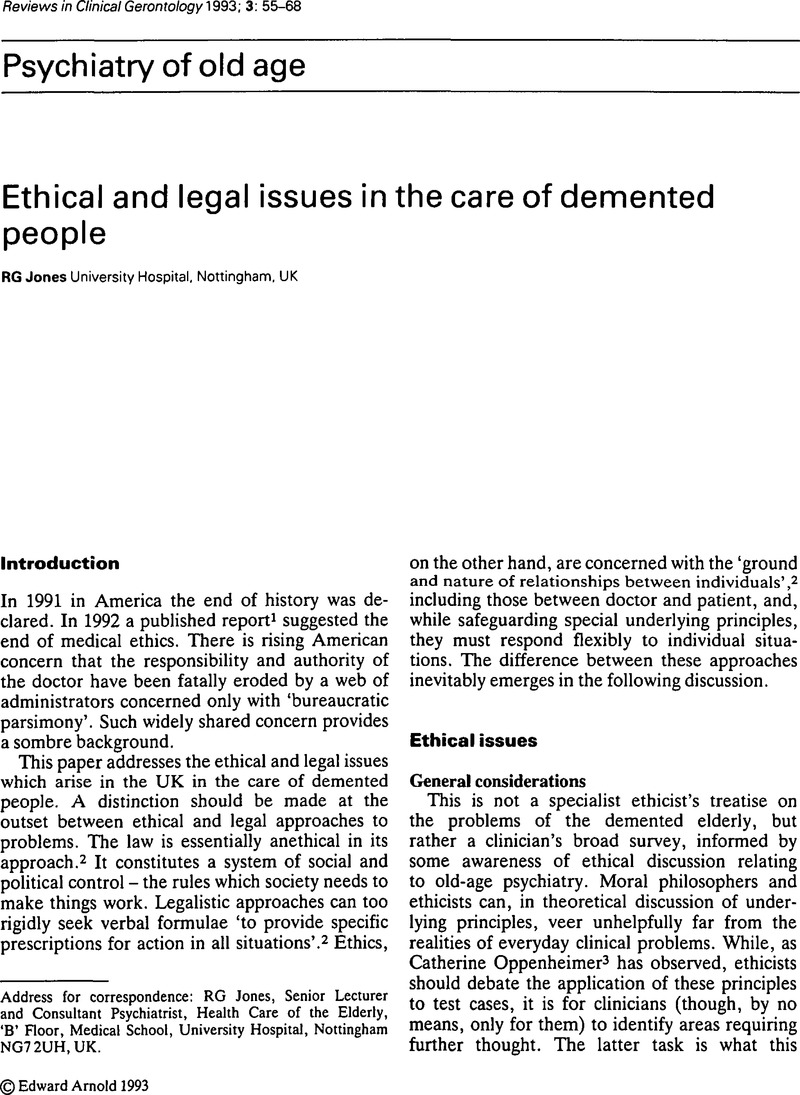Crossref Citations
This article has been cited by the following publications. This list is generated based on data provided by Crossref.
Keady, John
1994.
Living alone with dementia.
British Journal of Nursing,
Vol. 3,
Issue. 13,
p.
648.
Bradley, Greta
and
Manthorpe, Jill
1995.
The dilemmas of financial assessment: Professional and ethical difficulties.
Practice,
Vol. 7,
Issue. 4,
p.
21.
KEADY, JOHN
1996.
The experience of dementia: a review of the literature and implications for nursing practice.
Journal of Clinical Nursing,
Vol. 5,
Issue. 5,
p.
275.
Glover, Nicola
and
Brazier, Margaret
1996.
Ethical aspects of the Law Commission Report on mental incapacity.
Reviews in Clinical Gerontology,
Vol. 6,
Issue. 4,
p.
365.
Adams, Ruth
1998.
Options for the Management of Dementia in Primary Care.
British Menopause Society Journal,
Vol. 4,
Issue. 1,
p.
25.
Wilkinson, H.
2001.
Empowerment and decision-making for people with dementia: The use of legal interventions in Scotland.
Aging & Mental Health,
Vol. 5,
Issue. 4,
p.
322.



